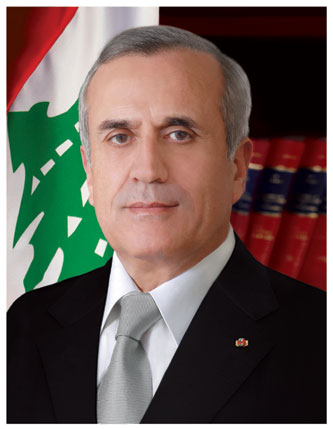
Ahead of the 2014 presidential election, this is the 12th and last article in a series that has examined the circumstances and conditions that shaped the elections of Lebanon’s presidents since 1943.
BEIRUT: The election of Michel Sleiman to the presidency came as a result of the Qatari-brokered Doha Accord that ended days of civil strife and months of a presidential vacuum, yet it was during his term that Lebanon would face an even graver crisis: the Syrian civil war.
In a bid to protect Lebanon from the fallout, Sleiman brokered the Baabda Declaration, a pact that called for Lebanon to be distanced from regional conflicts, particularly the war in neighboring Syria. Appointed Army Commander in 1998 to replace President Emile Lahoud when he was elected president, Sleiman rose to prominence in summer 2007 when the Army fought and eventually crushed militant group Fatah al-Islam in the northern Palestinian refugee camp of Nahr al-Bared. [Link]



